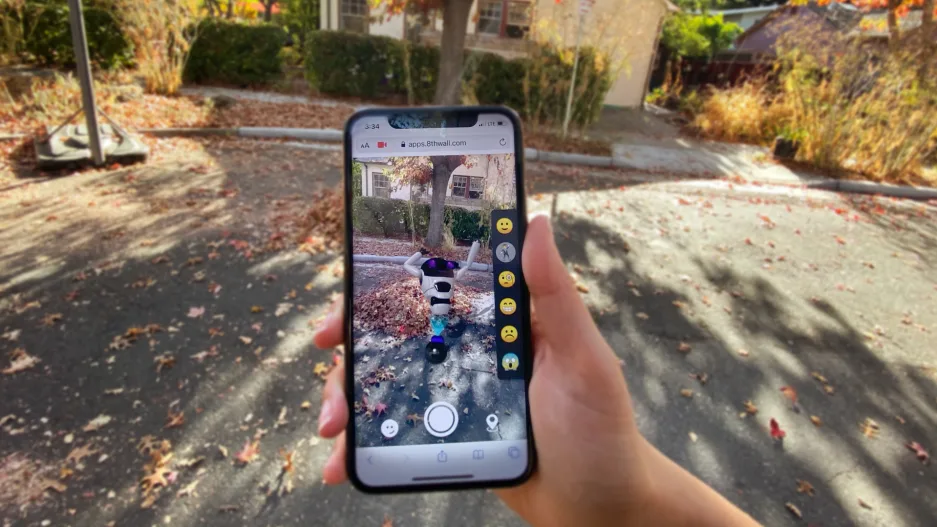- | 8:07 am
‘Pokémon Go’ creator Niantic acquires innovative AR company 8th Wall

The augmented reality game developer Niantic announced on Thursday that it has agreed to buy a company, well known within augmented reality circles, called 8th Wall, which has developed a way for users to view AR experiences on mobile devices without the need to open an app.
Niantic says the 8th Wall technology will become one of the tools it offers to developers in its Lightship development platform. Developers use Lightship to create games and other experiences on top of the same platform Niantic uses to create and deliver AR games like the popular Pokémon Go.
“Joining forces with Niantic, 8th Wall will empower more Lightship developers to realize their visions for AR in the real-world metaverse,” Niantic’s SVP of Engineering, Mapping and AR Brian McClendon wrote in a blog post Thursday.
Meta (formerly Facebook) put its flag in the ground last year by declaring itself a “metaverse” company and even changing its name to reflect that idea. But the company’s vision of the communal spatial-computing environment it calls the metaverse is so far confined to the closed-in worlds of VR. Niantic says its vision of the metaverse is a more open one that doesn’t shut out the real world, but rather embraces and incorporates it.

A Niantic spokesperson told Fast Company that it is not divulging the terms of the acquisition but added that it is one of the biggest acquisitions the company has made. As part of the acquisition, 8th Wall’s 34 employees will become Niantic employees and will continue to work from the company’s headquarters in Palo Alto.
Fast Company named 8th Wall to its list of Most Innovative Companies in the AR space in 2021. Niantic made the list in 2022.
8th Wall’s technology allows developers to create AR experiences using JavaScript and WebGL, allowing them to run in a mobile browser. Ad agencies can use the company’s WebAR tool to create experiences that run on their brand client’s websites, viewed within Safari and Chrome on iOS and Android devices. Like Niantic’s Lightship platform, 8th Wall’s tool already supports many of the features in Apple’s ARKit and Google’s ARCore, including light detection, surface and edge detection, and six degrees of freedom in user motion. In 2020, Lego used 8th Wall to turn the walls in Harry Potter sets into magic portals, and Burger King teleported the “King” and rapper Lil Yachty into viewers’ homes during the MTV VMAs.







































